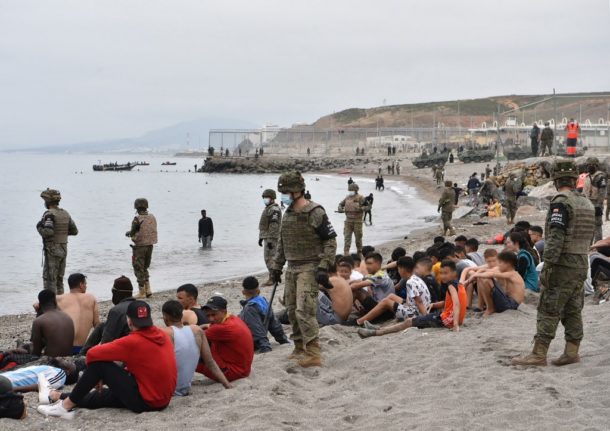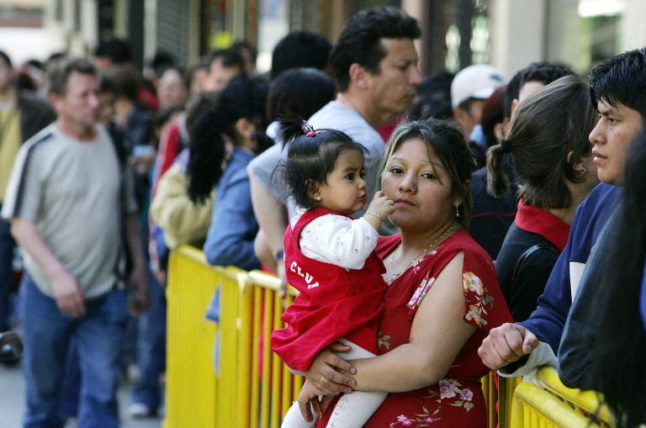More than 10,000 people surged across the frontier into Spain’s tiny North African enclave in mid-May 2021 as the Moroccan border guards looked the other way, among them hundreds of unaccompanied minors.
Although most migrants were immediately sent back in the following days, some 820 children and teenagers remained in Ceuta.
Several months later, the government of Socialist Prime Minister Pedro Sanchez began sending them back to Morocco in groups of 15, but the move sparked a backlash within his left-wing coalition and complaints from various NGOs.
In mid-August, a court suspended the repatriations following a petition by two human rights groups who said the youngsters were being sent back without any access to a lawyer or the chance to argue their case.
“It is legal and possible (to send them back) as long as it is done with a series of guarantees,” lawyer Patricia Fernandez Vicens told AFP at the time.
The authorities in Ceuta, as well as the central government’s representative in the city appealed the ruling, but on Thursday, Andalusia’s top court, which has jurisdiction in the enclave, confirmed the court’s original decision.
In the ruling, a copy of which was seen by AFP, the court found that the authorities had “omitted all the essential steps and procedural safeguards that must be complied with for repatriation.
“The actions of the administration made it impossible to follow up on the repatriations that it implemented,” it said.
“Its own actions, which lacked the minimum procedural guarantees required, resulted in an actual situation of risk to the physical or moral integrity of the unaccompanied minors who were sent back”.
The “massive, sudden and illegal” entry of migrants into Ceuta “in no way allows Spain” to sidestep the law, it concluded.
The ruling can be appealed.
Ceuta and Melilla, Spain’s two North African enclaves, have the European Union’s only land borders with Africa, making them a magnet for people who are desperate to escape grinding poverty and hunger.
Last week, at least 23 African migrants were killed when around 2,000 people tried to cross the fence into Melilla in what was by far the worst death toll in years of attempts to cross into the Spanish enclaves.



 Please whitelist us to continue reading.
Please whitelist us to continue reading.
Member comments